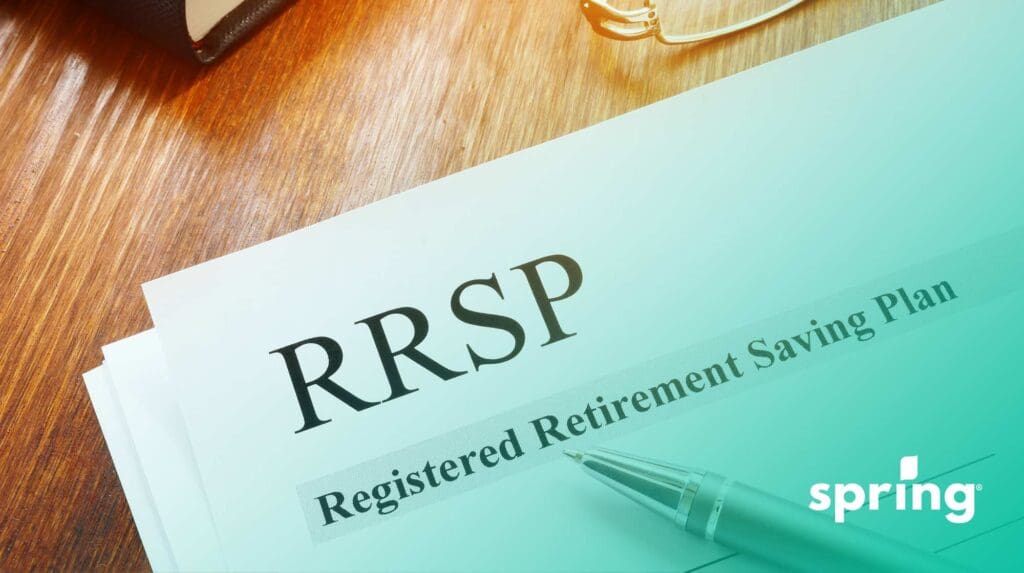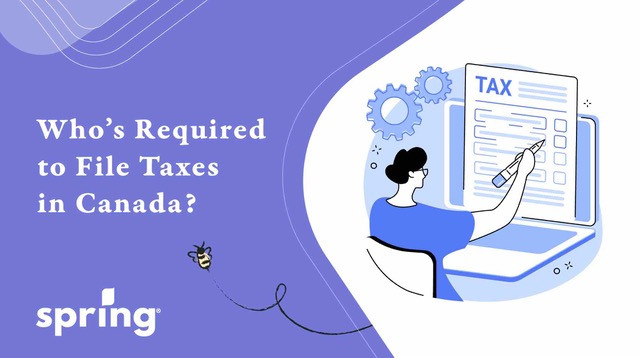If you have a lease that is more concrete, such as a year, then it can be more complicated to move due to legal obligations. This is especially the case when you want to move before the lease ends.
In Canada, just because your lease isn’t up doesn’t mean you have to stay. There are some ways to end your lease before it’s up and take the next step in your life. While it isn’t ideal, there are plenty of reasons why you would need to, so let’s take a look at how.
Can You Break A Lease Early in Canada
While you can break a lease early in Canada, the penalty for doing so is based on provincial legislation. If you have a month-to-month agreement, you don’t have to worry so much about breaking a lease, like you do with a fixed-term agreement. Technically, if you break a fixed-term lease assignment, you remain responsible for the remaining rent payments. This is the case even if you give your landlord notice.
The reason this is the case is that you’re breaking the liquidated damages clause in your contract. That said, this is the same when it comes to a landlord breach. They aren’t allowed to break clauses in the contract either. In most cases, the tenant board would have to get involved.
Ending a Lease Early Based On Where You Live
In Canada, every province has different requirements that affect renters and landlords. You don’t only have to consider what you’re allowed based on your location; you also need to look at your contract. Every lease contract will have different stipulations, so it’s important that you look those over and see what your rights are. This could show you another way out of the contract, whether that contract is joint tenancy or not.
British Columbia
When it comes to ending a tenancy in BC, there are a few ways that you can do so early. The first and easiest way to break a lease early is to have a mutual agreement with your landlord. This allows you to put in your notice and move without any hassles before the rental period ends. That said, though, it isn’t the only option.
If you’re fleeing for your own safety or need to go into long-term care, then your landlord can’t penalize you at all for having to end your lease early. It can also end if an arbitrator deems so or if you or the landlord break a material term of the tenancy.
If your landlord isn’t willing to let you break your lease early, then a good next step is to contact the BC Residential Tenancy Branch. They can advise you of your rights and the next steps you can take.
Alberta
When leasing in Alberta, the proper notice you need to give to end a lease is based on the type of lease it is and for how long. Fixed-term tenancy agreements end on a specified date that’s determined in your contract. The only for an early termination date is if the landlord and the tenant mutually agree.
The other type of lease in Alberta is a periodic tenancy agreement. This type of agreement ends based on the type of lease you have. For example, a monthly tenancy requires at least one month’s notice. If you have a one-year lease, then the requirement is 60 days’ notice. This should be submitted in writing to the landlord.
No matter what type of lease you have, the first step is to speak with your landlord. If you are unable to resolve anything that way, then the next step is to consult the Residential Tenancy Act. You can find information of their website, or you can contact them directly.
Saskatchewan
In Saskatchewan, there are many reasons why a tenancy might end early. That said, you do need to submit a Notice to Terminate to your landlord. If your landlord agrees to terminate early, then there should be no issues. That said, you’re required to give your landlord 60 days notice. If you need less than 60 days, then you do have to submit a good reason. This is called a file for cause.
If the landlord doesn’t agree to terminate the lease early, then you may have to take some extra steps. The best place to start is with the Office of Residential Tenancies. They will advise you on what your rights on, and how to approach the situation from here.
Manitoba
For a fixed-term tenancy in Manitoba, it will end at the end of the term. A notice isn’t required if you intend to move, but you may have the option to renew your lease. However, if you do need to end the tenancy early, there are plenty of different ways to do so.
Nearing the end of your tenancy, you should receive 3 months’ notice prior to your lease ending. If you choose to end your tenancy sooner than that, then you will need to submit written notice to your landlord. Ideally, 30 days’ notice is required, but, in the event of a rent increase, then 60 days notice is required.
If for any reason, you’re unable to terminate your lease early and make arrangements with your landlord, then it may be time to contact the Residential Tenancies Branch in Manitoba. They’ll advise you if you’re able to end your tenancy early, and how to do so if you are.
Ontario
In Ontario, there are two types of leases: fixed-term and non-fixed-term. These two different types of leases have different rules when it comes to ending a tenancy. With a non-fixed lease term, you’re welcome to leave at any time, but there are rules as to when you have to put in your notice based on your term. If your lease is monthly, then you have to put in at least 60 days notice. If your lease is a weekly tenancy, then the notice requirement is 28 days.
When it comes to leaving a fixed-term tenancy early, you have to stick them out until the lease ends. Of course, extenuating circumstances are always an exception, but the general rule is once the lease ends, it will become a non-fixed-term lease until you end it. Sixty days notice is required.
In the event you’re unable to break your lease, but you do qualify under extenuating circumstance, you can contact Ontario’s Landlord and Tenant Board. They can help you take the next steps to break your lease.
Nova Scotia
Nova Scotia is a province that’s a bit more flexible than most other provinces in Canada. It’s a bit easier to get out of a lease early, and you can sublet your place to a new tenant instead of terminating the lease. With your landlord’s agreement, however, you are able to terminate your lease early. No matter how you choose to end the lease, though, you should keep your contracts as proof of these agreements in case you ever need them in the future.
If you’re unable to get your landlords agreement to break the lease, you can reach out to the Residential Tenancies Program in Nova Scotia. They can help you with next steps.
New Brunswick
In New Brunswick, agreements between landlords and tenants are done with a Standard Lease Form. With this lease, you can have either a fixed-term lease or a periodic lease. With a periodic lease, you can have a week-to-week, month-to-month, or year-to-year lease.
These leases will continue until you end them. With a fixed-term lease, your lease will automatically end at the end of the term. From there, you can choose to end the lease or continue with a new agreement if it’s offered. If you choose to end the lease before the end of the fixed term, you’ll have to have an agreement from your landlord unless there are extenuating circumstances.
In the event talking to your landlord doesn’t get results, the next step is to contact the Tenancy Board in New Brunswick. They can be reached via phone or email.
Quebec
In Quebec, there are quite a few different ways that you can end a lease early. The first way is to make an agreement with your landlord. You can amend your current lease so you can end it, or you can create a new end date. If you do decide to do this, though, it’s best to have your landlord sign a new contract to confirm the new written agreement.
If you’re unable to end your lease, another option is to sublet your rental property (find a replacement tenant). This means you’re still technically responsible for the lease, but someone else is living there. The landlord still needs to receive their rental income, and if the subletter stops paying rent, it’s then up to you to cover it. There’s also the option to transfer the lease, meaning you can have someone take over until it’s completed.
The final way to end a lease early is if you have an extenuating circumstance. These include:
- Having a disability
- Reasons relating to sexual or domestic violence
- Moving into low-rent housing
This also applies if you’re a senior and are moving to a housing facility for assisted living. If you want to end the lease anytime before it ends, these reasons apply to allow you out of the lease for rental properties. You can also contact the Tenancy Tribunal to help you with the process.
Prince Edward Island
In PEI, fixed-term leases are pretty much set in stone. The lease will end once the specified end date has passed, but that doesn’t mean you’re required to move. Once a fixed lease ends, you can either renew the lease, or it’s automatically converted to month-to-month. If, at any point after the lease ends, you want to move, you have to put in at least 60 days’ notice.
If you need to end the lease early, the best thing you can do is speak to your landlord. While you may not be able to end the lease, an option you do have is to sublet. You don’t have to sublet this yourself either; the landlord can choose to find the other renter. With this option, it’s important to keep in mind that if a subletter can’t be found, you will be required to pay the rent for the remainder of the lease.
In PEI, you can contact the Residential Rental Office if you have any questions regarding your lease, as well as for information regarding breaking your lease early.
Newfoundland and Labrador
While you can find pretty long leases throughout the country, Newfoundland only offers leases that go as high as a year. Typically, these leases end on a specific date and not before. At the time the lease ends, you can either renew, put in your notice or choose to convert to month to month.
Once the lease date ends, either you or the landlord can choose to end the lease as long as you give the required notice. For a tenant, two months’ notice is required, and 3 months is required for a landlord. Once you’re in a month-to-month or periodic lease, then only one month’s notice is required.
If you need help with the process of breaking your lease in Newfoundland, then a good place to start is the Residential Tenancies Service. Here you can find information on breaking your lease or you can speak to someone regarding your next steps.
Your Deposit When You Break A Lease
When a tenant breaks a lease, the landlord is able to keep the security deposit. This is a risk you take when you end your lease early. That said, if you opt for subletting or a lease arrangement instead, you could still keep your deposit.
While it may seem strange that your landlord is able to keep your deposit, they’re able to do so because you technically broke the contract. This is something you need to consider before terminating the lease early. That said, it all depends on your landlord if they will keep the deposit. Just because they can doesn’t mean that they will.
Breaking a Lease Without Penalty
One way you can avoid a penalty when breaking your lease is by having your landlord’s permission. If they agree to alter your contract, then you could avoid paying any penalties. This can also be done by subletting your rental unit or making a lease arrangement.
With a lease arrangement, what you’re doing is having another person take over your lease. This means that their lease will end when yours was supposed to. With subletting, you’re still responsible for the lease, but the subletter is responsible for the rent.
The last way that you can avoid a penalty is if the Residential Tenancy Branch decides it. This is the branch that governs tenant and landlord rights in Canada. Sometimes, they need to intervene in cases where the tenant fails to pay rent or the landlord fails to keep their end of the contract, and if they do, what they say goes.
Penalties for Breaking a Lease in Each Province
Depending on where you live in Canada, there could be penalties for not giving proper notice and breaking your lease early. These penalties vary depending on where you live and by how much you broke your lease. In cases like this, not only will you be required to pay some money to the landlord, but you will also likely lose your deposit.
Notice Required to Move
In Canada, how much notice is required is based off of where you live. In some cases, you may be required to give more than 30 days’ notice; the standard agreement only requires 30 days written notice.
Can a Landlord Break a Lease?
While it can be more difficult, landlords are able to break a lease, just like tenants. That said, the reasons that landlords can break a lease are limited to the ones listed in the Residential Tenancies Act. In order to enforce them, they must submit a formal notice to the tenant and give them a certain time period in order to move.
Mutual Agreement to End Tenancy
Mutual agreement to end tenancy is a little different than giving notice. In this situation, both parties agree to terminate the tenancy, and there are no penalties given to either party. This means you’ll likely get all of your funds back, at least the ones you’re normally required to receive when moving from a rental property.
Final Thoughts
When it comes to breaking a lease in Canada, what you’re able to do is based on your lease contract and where you live. That said, ending a lease early in Canada can be frustrating for both the landlord and the tenant. This is the reason that many renters opt for month-to-month leases.
This makes moving on your terms easier, but it also makes it easier on the tenant. No matter what kind of lease you do sign, the best course of action is to talk to your landlord if you intend to move and then go from there.









